Scuba diving is mostly a social sport as it involves a somewhat crowded boat, and a dive buddy. The dive buddy is a major part of all scuba diving certification courses. Indeed, you’re taught underwater team work and to always care for and rely on your dive buddy. Solo diving is often thought of as technical diving, something only the pros would do, but perhaps we’ve got a biased perception of it. Think about the numerous scuba diving story that we hear about a scuba diver that got separated from his dive buddy, or one that got paired with a buddy that is not well trained. In such cases, having a solo diver certification can benefit to all of us.
Let’s learn more about solo scuba diving and see how and why getting a solo diver certification might be a good idea!
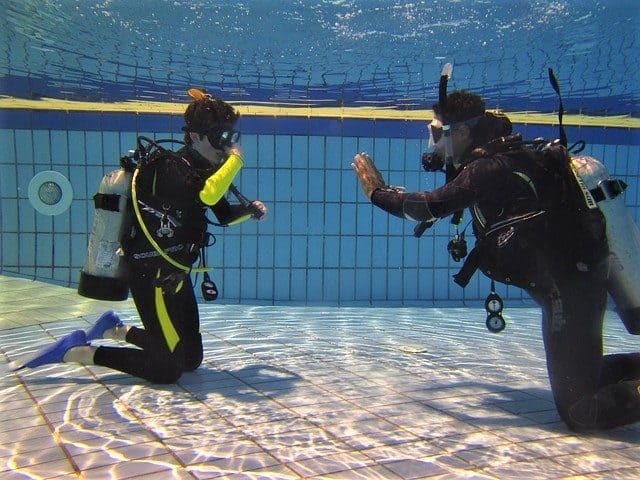
The solo diving certification course
The certification you need to dive solo are offered with PADI as the Self Reliant Solo Diver Course or with SDI as the Solo Diver course. Scuba Schools International (SSI) also has a certification for solo diving which is called Independent Diving.
The prerequisites vary depending on the agency. For example, with SSI you can take the Independent Diving course if you are over 18 years old and Open Water Diver certified. On the other hand, with PADI and SDI, you need to be certified as an Advanced Diver and have a minimum of 100 logged dives prior to the solo diver certification. According to a blog post on Scuba Diving International’s website, the 3 certifications are equivalent. You can read this post here, and you’ll also notice a huge comparison chart for all the certification courses between PADI, SDI and SSI, it’s great!
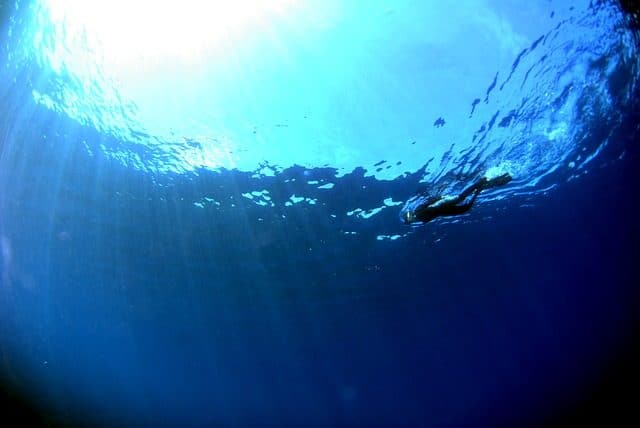
Why and when would you need to dive solo?
Usually when we think of a solo scuba diver we refer to scientists, spear fishers and serious underwater photographers. Diving solo requires some technical skills and was once reserved to highly trained professionals. This is changing as some expert divers advise solo diving in order to allow any serious diver to me autonomous underwater. The buddy system is what we first learn when getting certified and it sure is a proven working and safe system. That being said, incidents happens, currents happens, and inexperienced dive buddies happens. What if you are dragged away from your buddy or dive leader, do you have the skills to safely dive by yourself? Perhaps you should.
If you’re a lone adventurer and travel solo often, you could want to be a trained solo diver but still dive with a buddy. Indeed, it’s a peace of mind to know that you can be paired with anyone on the dive trip and be totally self-sufficient if your dive buddy is inexperienced, or if you get separated from the group. Simply imagine a common scene in Thailand, where you are ready, with over 100 dives under the belt, and you are paired with a diver that is making his tenth plunge in the deep blue. Plus, what if a problem arises underwater. I would want to be autonomous.
The certification will teach you to be self-reliant and to have the ability to deal with any issues that might occur. You’ll learn to carry and work with a new type of dive buddy: your extra, independent, air source. Indeed, experts agree that solo diving requires top notch diving skills and top shape equipment, plus spare equipment. You need an extra one of every essential pieces of gear such as the air source, the mask, the computer, the buoy, cutting tool, etc.
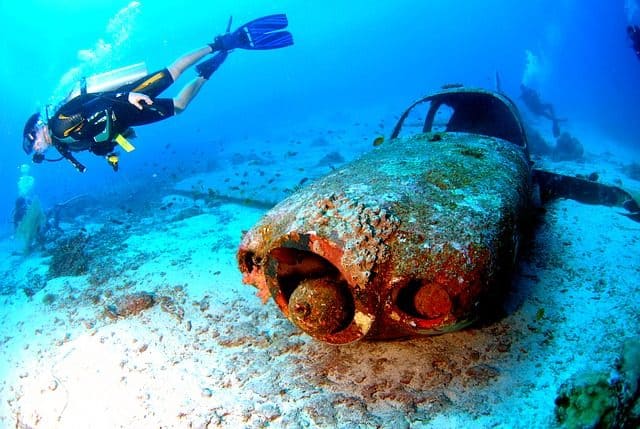
Is solo diving for you?
Every diver should be trained to be self-sufficient, it’s simply an extra safety net to have while practicing this somewhat risky sport. This way, if anything happens, a diver would be trained to reach the surface and/or the boat safely and by himself if needed. That being said, diving is, and should remain, a social sport. It’s so much fun to point out at underwater critters and show our buddy, and then discuss what you’ve seen afterwards on the boat. Sharing the experience with someone is often a bright side of scuba diving and it’s crucial in the process of learning the basic diving skills.
Otherwise, if you are a seasoned diver and you want to dive alone and not have to wait for a buddy, the solo diver training is definitely for you. This way, you’ll have the skills to scuba dive by yourself and still be safe.
Are you a solo diver ? Tell us more about your experience ? Why should anyone get certified for solo scuba diving ? Comment below ⇓
 Destinations
Destinations



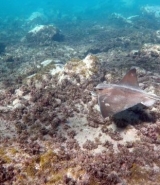
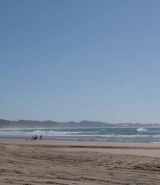




I am noy a solo diver being two star CMAS diving instructor. Certainly I am not a proponent of it. The buddy diving is fundamental rule embraced in the training schemes. On top it is all about safety. How you tacle the solo diver in remote diving club if you arrange the guide as usually it is mnot a solo any more
Diving is fun whether you are in group or diving alone. But, sometimes diving alone can be a trouble. So, having a solo diving certification is really necessary.
Hello!
I would like to thank both of you for reading DiveZone & sharing your thoughts on this!
Of course, the buddy is essential, and to me it’s a huge part of the fun when sharing a scuba diving experience! Still, I would definitely find it interesting to have a self-sufficient diver training, not even to dive alone, but to be able to rely on my self entirely should anything happens underwater.
Safe bubbles! Always!
hi there,
I have a house in Solo Indonesia but the sea is far a way from the city so if there any information about scuba diving please inform me so I can join any company to dive with them. I have advance license.
best regard,
Momo
This is great to read about solo diving, if you are planning to go for then you must have any of these – LINK REMOVED – Best Underwater camera for making your dive memorable and captured.
Hello to everybody! I am writing this post as not an adherent to buddy system – just a few words why – how many times you will be in case to dive with buddy as experienced as you (a little more or a little less) – not many (only if dive with constant buddy and travel with him everywhere. So, imagine next situation – dive with buddy (experienced or not) not “tested” under water and You have problem – I mean Problem – You hope for wright reaction of a person which, You do not know or You do not know under water in situation. Personally I do not want to leave my self in situation like this.
So – my opinion is – to be safe diver (personally for Your self) You must be prepared to dive and to solve Problems under the water solo!!! For You (in mind) to dive with buddy must be something like next step of responsibility – You already are partly responsible for another person’s life – think for moment about this, next time when You go for diving – are You prepared to solve a buddy’s Problem under water – and I mean – not just to give him the “octopus regulator”
In that course – about the first post – MarekJasinski – **CMAS Instructor Must be much more than a solo diver – You dive and teach people under water – so You must be ready to solve possible Yours and problems of the other people down there!
It was just my opinion
I dive from 1985 and continue , never have left person “behind” in the water dead or alive – wish all of You the same!!!
Hi Mr. Lazarov!
I simply wanted to thank you for sharing your opinion on this matter! Plus, it’s very well explained and definitely makes lots of sense. I truly encourage more divers to see diving this way and make sure they’re fully capable for themselves and to help their buddy, should anything happen.
Safe bubbles, always!